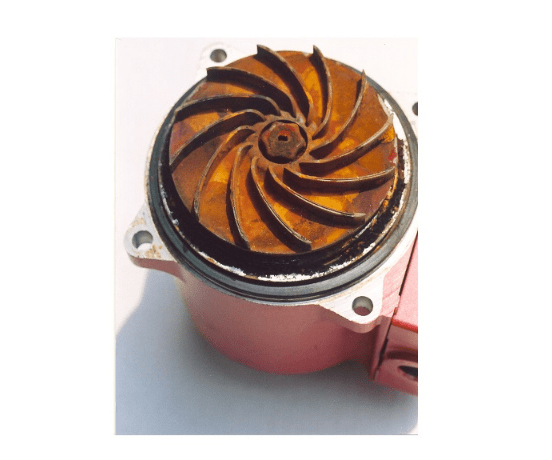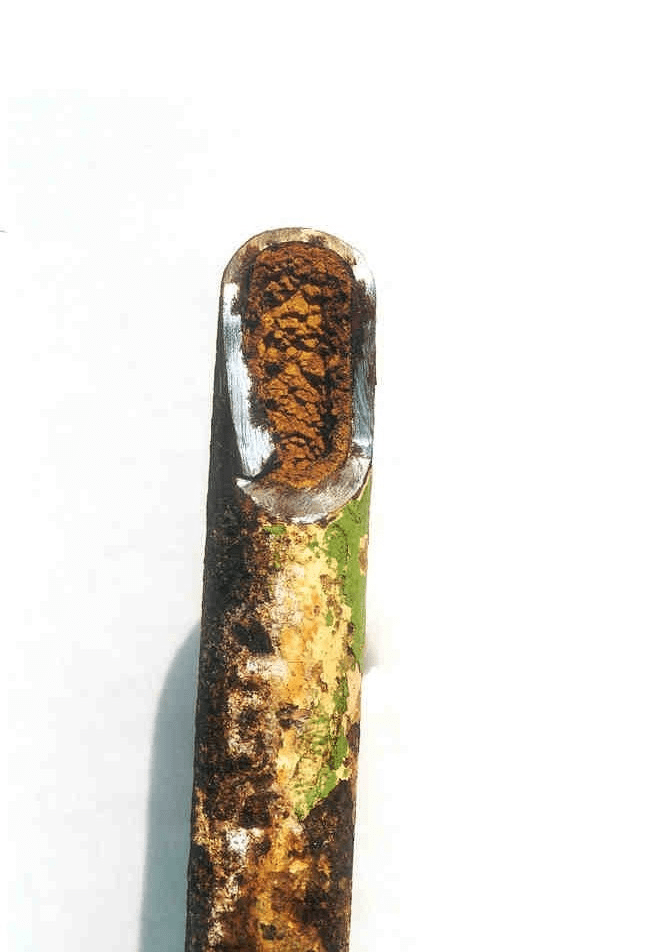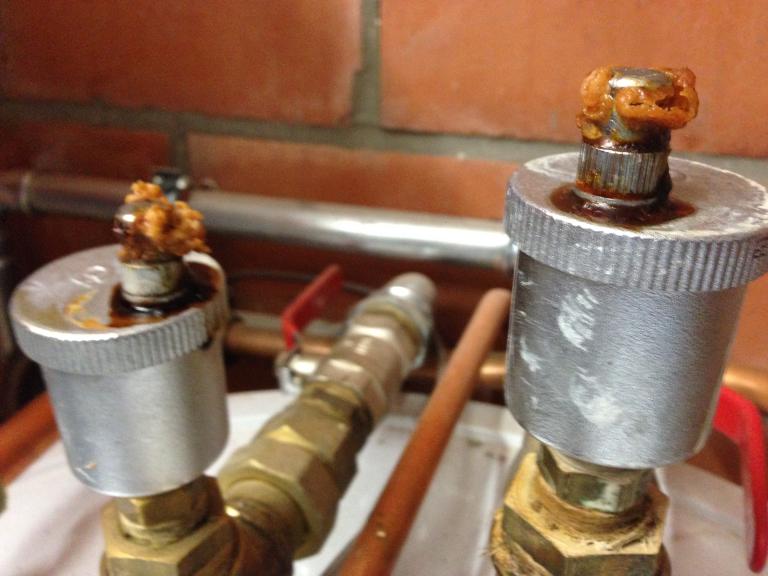Symptoms
Corrosion is not an issue in a properly working closed water-bearing system. The system water is 'dead', because no new oxygen is introduced. Nevertheless, somehow there are daily corrosion problems to contend with.
Manufacturers of heating and cooling system components demand a minimal water quality to ensure their increased yield and energy performances. That's because the build-up of grime due to corrosion is an insidious threat that may cause serious damage to water-bearing systems. Constant preventive control and monitoring can help prevent what's been called the "Sick installation Syndrome".
Blockages
A pump that makes a 'grating' sound. A pump or control valve with a blocked shaft. The spindle of a thermostatic tap that 'sticks'. These problems can cause a great deal of inconvenience, generate huge costs and vastly increase your ecological footprint. Prevention – and avoiding unnecessary costs – is always better.

Obstructions
The oxygen present in a heating system will soon produce corrosion. A deposit will form in the system, increasing flow resistance in the pipes, which reduces the efficiency of the pump. This deposit is a thermal insulator, too, which means it reduces the efficiency of boilers and heat exchangers slightly.
If the process is unchecked the pipes will eventually become completely blocked. As a result, some branches or entire parts of systems will no longer be heated. Unfortunately, this process is very difficult to detect early on. Black or red water and higher power consumption can also be an indication of such problems...

Leaks
When leaks are found in systems the response is often to patch the hole. That certainly sorts out the leak. However, leaks can also be a symptom of a latent corrosion problem. In a system riddled with corrosion the knee-jerk reaction is often to replace components, such as radiators, pipes and boilers.
These investments will be in vain if the cause of the corrosion is not dealt with. The new component will display exactly the same symptoms after a few months. Water has to be added frequently, because of water loss in the system, which introduces new oxygen too...

